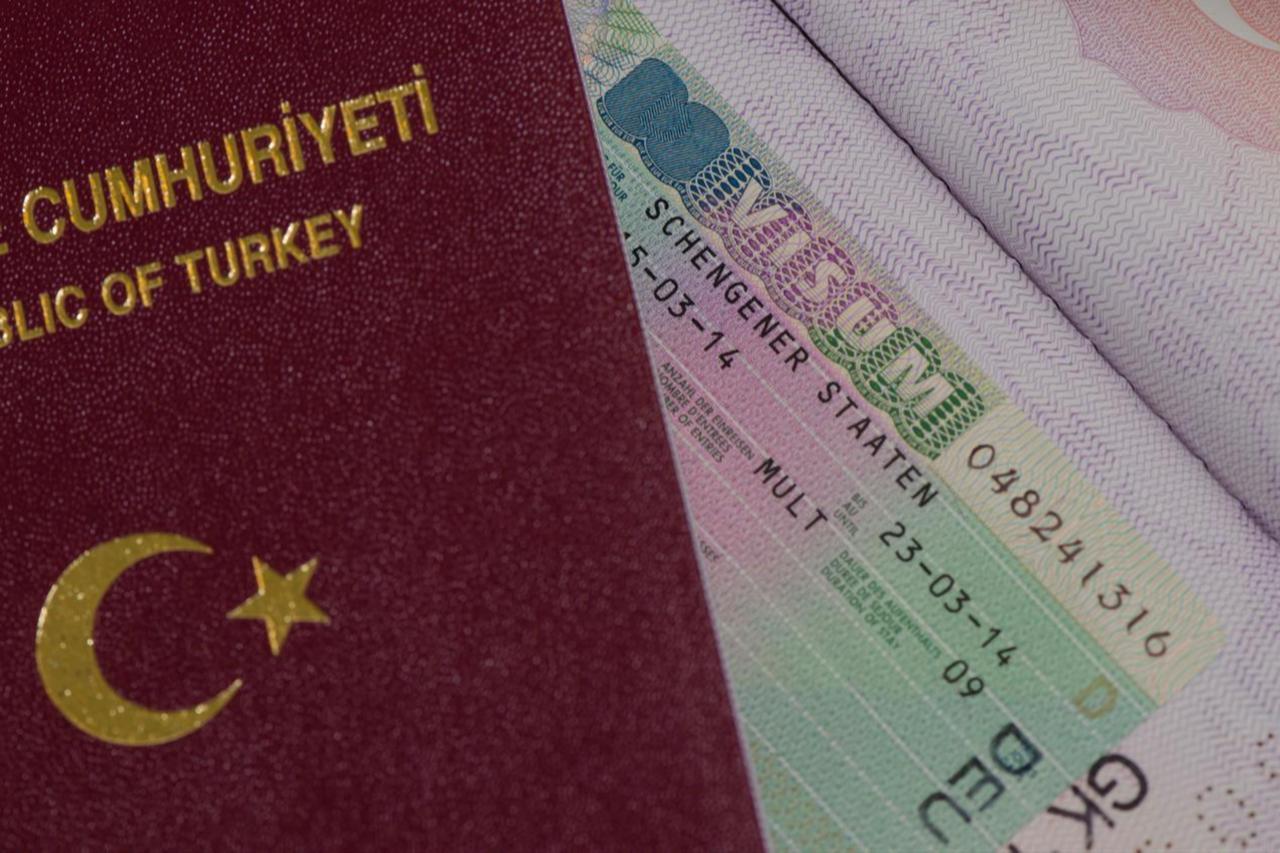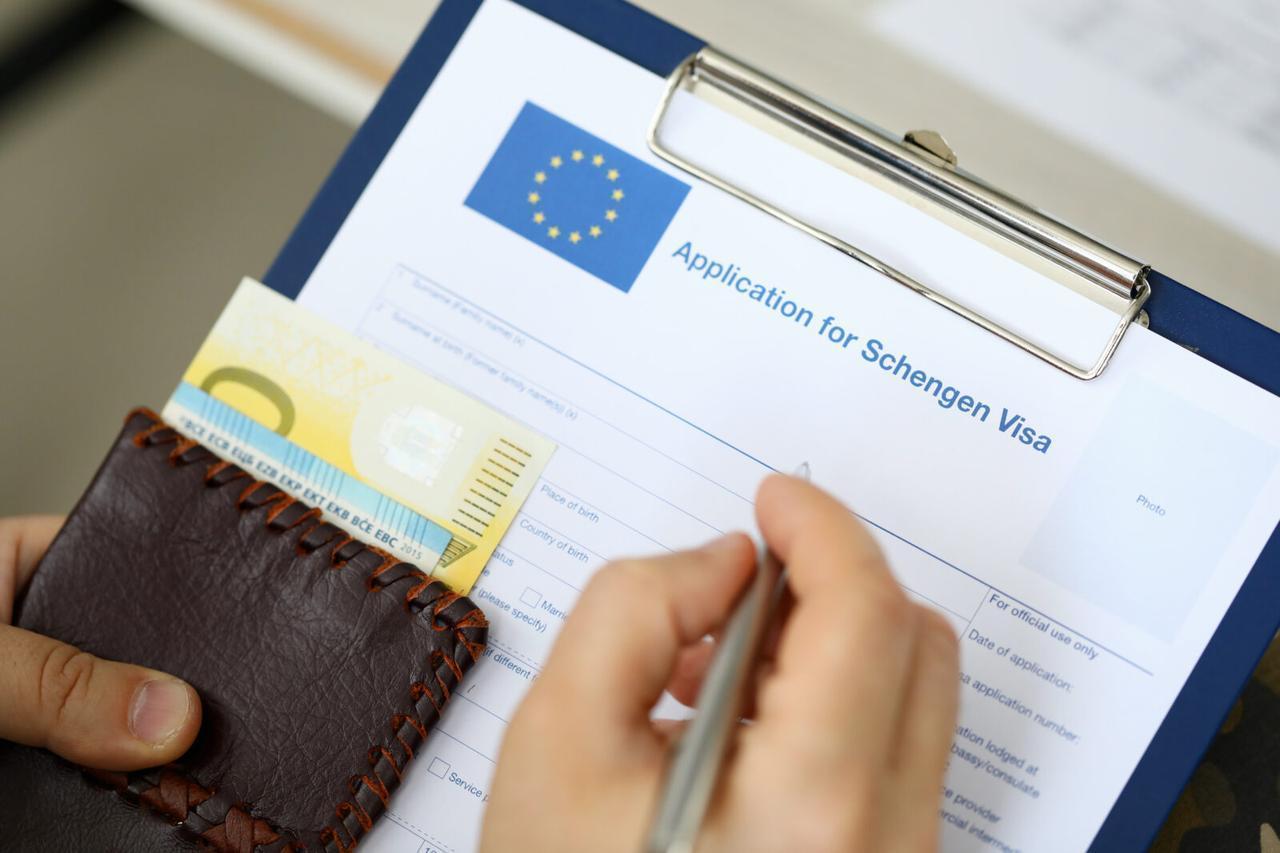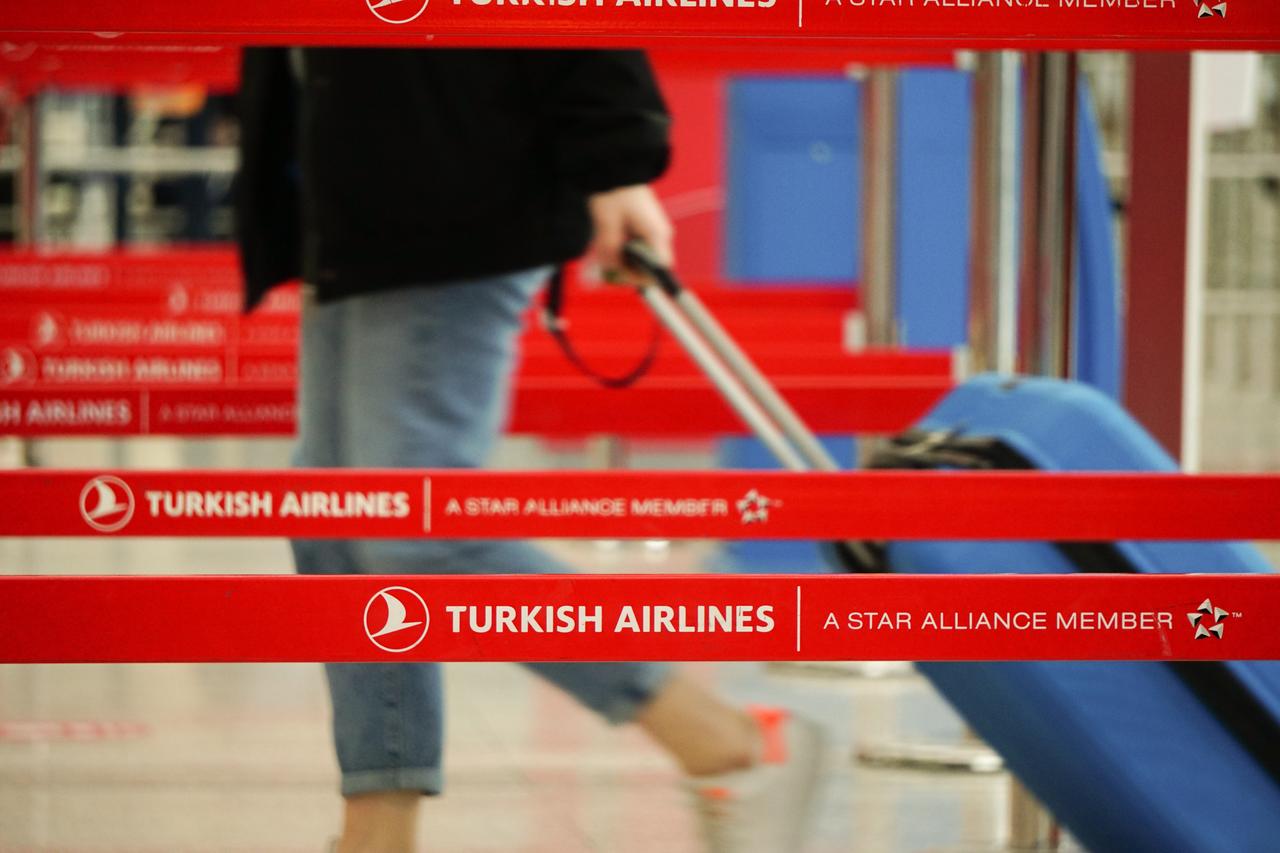
The European Union wants to restart technical discussions with Türkiye on visa liberalization after the summer vacation to work on the remaining six criteria, E.U.-Türkiye Delegation Head Ambassador Thomas Hans Ossowski announced on Friday.
Speaking at a press conference at the E.U. Delegation building in Ankara, Ossowski said the E.U. is ready to cooperate closely with Turkish authorities on completing the remaining requirements for visa-free travel.
"We are ready to be in close cooperation with Turkish authorities. This should have happened long ago for Türkiye. We want to start technical discussions after this summer," Ossowski said.
The ambassador noted that while other E.U. candidate countries have visa-free travel rights, Türkiye still requires visas despite being offered visa liberalization more than 10 years ago.

Ossowski said the E.U. previously presented 72 criteria to Türkiye for visa liberalization, but only 66 have been completed so far.
"We are ready to be in close cooperation with Turkish authorities for the completion of the remaining six criteria as well. Because this is the real solution," he stated.
The ambassador emphasized that visa liberalization represents the only permanent solution to overcrowded consulates and long waiting times for Turkish citizens seeking to travel to Schengen countries.
"We want to restart this dialogue. Even if we continue these facilitations in visas, we cannot fully solve the congestion in consulates and long waiting times due to the large number of people who want to travel from Türkiye to the Schengen area. The real and permanent solution is the effective and successful completion of the visa liberalization dialogue," Ossowski said.

The announcement came as the E.U. implemented new "Cascade" visa rules for Turkish citizens, making it easier to obtain multi-entry long-term Schengen visas.
Under the previous system, Turkish citizens needed to apply for single-entry or short-term visas three times before qualifying for longer-term visas. The new system reduces this requirement significantly.
"In the new system, a short-term visa will be obtained in the first application, and if used in accordance with the law in the second application, a six-month visa will be given with the right to stay 90 days in 180 days. Those who use this without problems will be given a one-year multi-entry visa in the third visa. After that, it will be possible to give three-year and five-year visas," Ossowski explained.

Ossowski said Turkish citizens submitted a record 1.2 million Schengen visa applications last year, representing a 10% increase compared to 2023.
"Our economy, our business world, our universities, our family ties, many things depend on visa liberalization. We received a record level of 1.2 million visa applications last year. This means a 10% increase compared to 2023," he said.
The visa rejection rate for Türkiye stood at 14.5% last year, below the global average of 16%. When including 100,000 visas issued under the temporary program for Greek islands, the rejection rate dropped to 13.1%.

The ambassador warned Turkish citizens against fraudulent tourism agencies that exploit the visa application process.
"There are some malicious tourism agencies in Türkiye. Not all of them, of course, but some deceive people by arranging fake documents or selling fake appointments. As soon as consulates open the appointment window, they close all appointments with software and then sell them," Ossowski said.
He noted that cooperation with Turkish authorities, including the Interior Ministry, has helped combat such fraudulent activities.
"The Interior Ministry is also working seriously to eliminate these frauds. Because no matter how much our visa cascade system is facilitated, if these malicious intermediaries clog the system, the problem continues," he stated.

Ossowski said the cascade visa system emerged as a result of high-level meetings between E.U. Commissioner for Home Affairs and Migration Magnus Brunner and Turkish Interior Minister Ali Yerlikaya, following cooperation between Türkiye and the E.U. on migration and readmission issues.
The ambassador noted that the visa facilitation measures were initiated by embassies and consulates of E.U. member states in Ankara, approved by member states in Brussels, and accepted by the E.U. Commission.
"I want to emphasize that this is an indication of the goodwill shown by Schengen countries to Turkish citizens, to passengers traveling to the EU. We took these steps to support people-to-people ties," Ossowski said.
Ossowski announced he will serve as Germany's E.U. Permanent Representative in Brussels after his assignment in Türkiye ends.
He emphasized that visa liberalization should have been implemented for Türkiye long ago, noting that Georgia, Ukraine, Western Balkan countries, and even Kosovo have visa-free travel with the E.U.
"The completion of the remaining six criteria is necessary for Turkish authorities to work closely with us. Because this is the real solution. It is not possible to overcome the excessive congestion of consulates, fraud, and long waiting times in any other way," Ossowski concluded.
Jens Janik of the German Embassy highlighted that a Schengen visa grants access to 29 countries: "This is a globally unique system."
Ambassador Ossowski concluded, "We offered visa liberalization to Türkiye more than a decade ago. Despite the improvements, the only lasting solution is completing this process successfully."